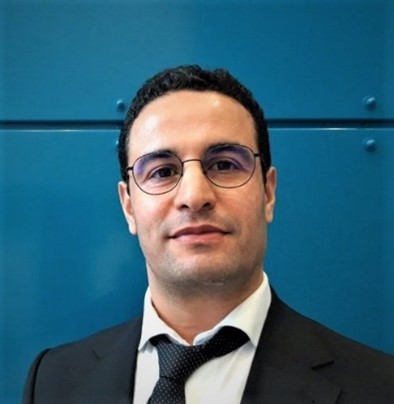
Aristotle University of Thessaloniki, Greece
Abstract:
With the ever-increasing momentum of the Internet of Things (IoT), new computing paradigms have emerged, such as fog computing, in order to solve the problem of the inherent latency of the remote cloud resources. The huge amount of data generated by IoT sensors and devices typically requires processing in a real-time manner, which cloud resources cannot usually provide due to their distance from the IoT layer. Fog computing extends the cloud closer to where the IoT data are generated in an attempt to meet the requirements of low latency. Resource allocation and scheduling of the real-time applications on the multi-tier resources are particularly important issues in achieving good performance. In this keynote, we will shed light on resource allocation and scheduling techniques for real-time applications, leveraging the power of cloud and fog computing. We will present novel approaches that have been proposed in the literature and we will provide open research challenges and future directions.
Biography:
Helen Karatza (Senior member, IEEE, ACM, SCS) is a Professor Emeritus in the Department of Informatics at the Aristotle University of Thessaloniki, Greece. Dr. Karatza's research interests include cloud and fog computing, resource allocation and scheduling, real-time distributed systems, simulation and performance evaluation of large-scale distributed systems. Dr. Karatza has authored or co-authored over 240 technical papers and book chapters including five papers that earned best paper awards at international conferences. She served as an elected member of the Board of Directors at Large of the Society for Modeling and Simulation International. She served as Chair and Keynote Speaker in international conferences. Dr. Karatza is the Editor-in-Chief of the Elsevier journal “Simulation Modelling Practice and Theory” and member of the Editorial Board of the “Future Generation Computer Systems” Elsevier journal. She was Editor-in-Chief of “Simulation Transactions of the Society for Modeling and Simulation International”, Associate Editor of “ACM Transactions on Modeling and Computer Simulation” and Senior Associate Editor of the “Journal of Systems and Software” of Elsevier. She served as Guest Editor in numerous Special Issues of international journals. More info about her activities and publications can be found at https://users.auth.gr/karatza/.

School of Computer Science and Informatics,Cardiff University, UK
Abstract:
Internet of Things (IoT) applications today involve data capture from sensors and devices that are close to the phenomenon being measured, with such data subsequently being transmitted to Cloud data centre for storage, analysis and visualisation. Currently devices used for data capture often differ from those that are used to subsequently carry out analysis on such data. Increasing availability of storage and processing devices closer to the data capture device, perhaps over a one-hop network connection or even directly connected to the IoT device itself, requires more efficient allocation of processing across such edge devices and data centres. Supporting machine learning & data analytics directly on edge devices also enables support for distributed (federated) learning, enabling user devices to be used directly in the inference or learning process. Scalability in this context needs to consider both cloud resources, data distribution and initial processing on edge resources closer to the user. This talk investigates how a data analytics pipeline can be deployed across the cloud-edge continuum. Understanding what should be executed at a data centre and what can be moved to an edge resource remains an important challenge -- especially with increasing capability of our edge devices. The following questions are addressed in this talk:
Biography:
Omer F. Rana is a Professor of Performance Engineering at Cardiff University, with research interests in high performance distributed computing, data analysis/mining and multi-agent systems. Currently, he is the Dean of International for the Physical Sciences and Engineering College. He previously led the Complex Systems Research Group. He was formerly the deputy director of the Welsh eScience Centre and had the opportunity to interact with a number of computational scientists across Cardiff University and the UK. He serves on the steering committee of Cardiff University's multi-disciplinary "Data Innovation" and "Energy Systems" Research Institutes. Rana has contributed to specification and standardisation activities via the Open Grid Forum and worked as a software developer with London-based Marshall Bio-Technology Limited prior to joining Cardiff University, where he developed specialist software to support biotech instrumentation. He also contributed to public understanding of science, via the Wellcome Trust funded "Science Line", in collaboration with BBC and Channel 4. Rana holds a PhD in "Neural Computing and Parallel Architectures" from Imperial College (London Univ.), an MSc in Microelectronics (Univ. of Southampton) and a BEng in Information Systems Eng. from Imperial College (London Univ.). He serves on the editorial boards (as Associate Editor) of IEEE Transactions on Parallel and Distributed Systems, (formerly) IEEE Transactions on Cloud Computing, IEEE Cloud Computing magazine and ACM Transactions on Internet Technology. He is a founding-member and associate editor of ACM Transactions on Autonomous & Adaptive Systems.

Communications and Networking Department, School of Electrical Engineering, Aalto University, Finland
Abstract:
The architectures of mobile networks have seen an unprecedented techno-economic transformation, fusing the telco world within the cloud world, adding the spices of Software Engineering to the overall system design, and ultimately yielding the concept of Telco Cloud. This has brought significant benefits in terms of reducing expenditure and operational costs, flexibility in deployment, and faster time to market. The key enablers are Network Function Virtualization, Software-Defined Networking, and Edge/Cloud Computing. Artificial Intelligence is also kicking in this arena. When all these technologies are well integrated, the creation and lifecycle management of fully programmable, flexible, service-tailored, and automated end-to-end network slices become possible. This will support diverse 5G and beyond 5G services, spanning from Tactile IoT to Pervasive Robotics and Immersive Services. This talk will showcase how the architectures of different generations of mobile networks have evolved. It will also show the journey that 6G will be likely taking towards enabling a new breeze of cloud-native mobile networking; whereby the old-fashioned concept of “network of networks” would be simply replaced by a new vision of “service of services.”
Biography:
Prof. Tarik Taleb is Professor at the School of Electrical Engineering, Aalto University, Finland. He is the founder and director of the MOSA!C Lab (www.mosaic-lab.org). He is also Professor at the Center of Wireless Communications, University of Oulu, Finland. Prior to his current positions, he was working as Senior Researcher and 3GPP Standards Expert at NEC Europe Ltd, Heidelberg, Germany. Before joining NEC and till Mar. 2009, he worked as assistant professor at the Graduate School of Information Sciences, Tohoku University, Japan, in a lab fully funded by KDDI, the second largest mobile operator in Japan. From Oct. 2005 till Mar. 2006, he worked as a research fellow at the Intelligent Cosmos Research Institute, Sendai, Japan. He received his B. E degree in Information Engineering with distinction, M.Sc. and Ph.D. degrees in Information Sciences from Tohoku Univ., in 2001, 2003, and 2005, respectively. Prof. Taleb’s research interests lie in the field of network softwarization & slicing, mobile cloud networking, network function virtualization, software defined networking, mobile multimedia streaming, and cloud computing. He served as the general chair of the 2019 edition of the IEEE Wireless Communications and Networking Conference (WCNC’19) held in Marrakech, Morocco. He was the guest editor in chief of the IEEE JSAC Series on Network Softwarization & Enablers. He is/was on the editorial board of the IEEE Transactions on Wireless Communications, IEEE Wireless Communications Magazine, IEEE Journal on Internet of Things, IEEE Transactions on Vehicular Technology, IEEE Communications Surveys & Tutorials, and a number of Wiley journals. Till Dec. 2016, he served as chair of the Wireless Communications Technical Committee, the largest in IEEE ComSoc. He also served as Vice Chair of the Satellite and Space Communications Technical Committee of IEEE ComSoc (2006 - 2010). Prof. Taleb is the recipient of the 2017 IEEE ComSoc Communications Software Technical Achievement Award (Dec. 2017) for his outstanding contributions to network softwarization. He is also the (co-) recipient of the 2017 IEEE Communications Society Fred W. Ellersick Prize (May 2017), the 2009 IEEE ComSoc Asia-Pacific Best Young Researcher award (Jun. 2009), the 2008 TELECOM System Technology Award from the Telecommunications Advancement Foundation (Mar. 2008), the 2007 Funai Foundation Science Promotion Award (Apr. 2007), the 2006 IEEE Computer Society Japan Chapter Young Author Award (Dec. 2006), the Niwa Yasujirou Memorial Award (Feb. 2005), and the Young Researcher's Encouragement Award from the Japan chapter of the IEEE Vehicular Technology Society (VTS) (Oct. 2003). Some of Prof. Taleb’s research work have been also awarded best paper awards at prestigious IEEE-flagged conferences.

Senior Data Science Advocate, Databricks, USA
Abstract:
Machine learning as a decision making tool has gained wide acceptance. However, in order to extract information from data using machine learning, it is critical that the ML lifecycle be managed using best practices. In this talk, I will cover some of the foundational principles in scalable machine learning starting from data provenance/lineage and model building to model deployment and monitoring.




